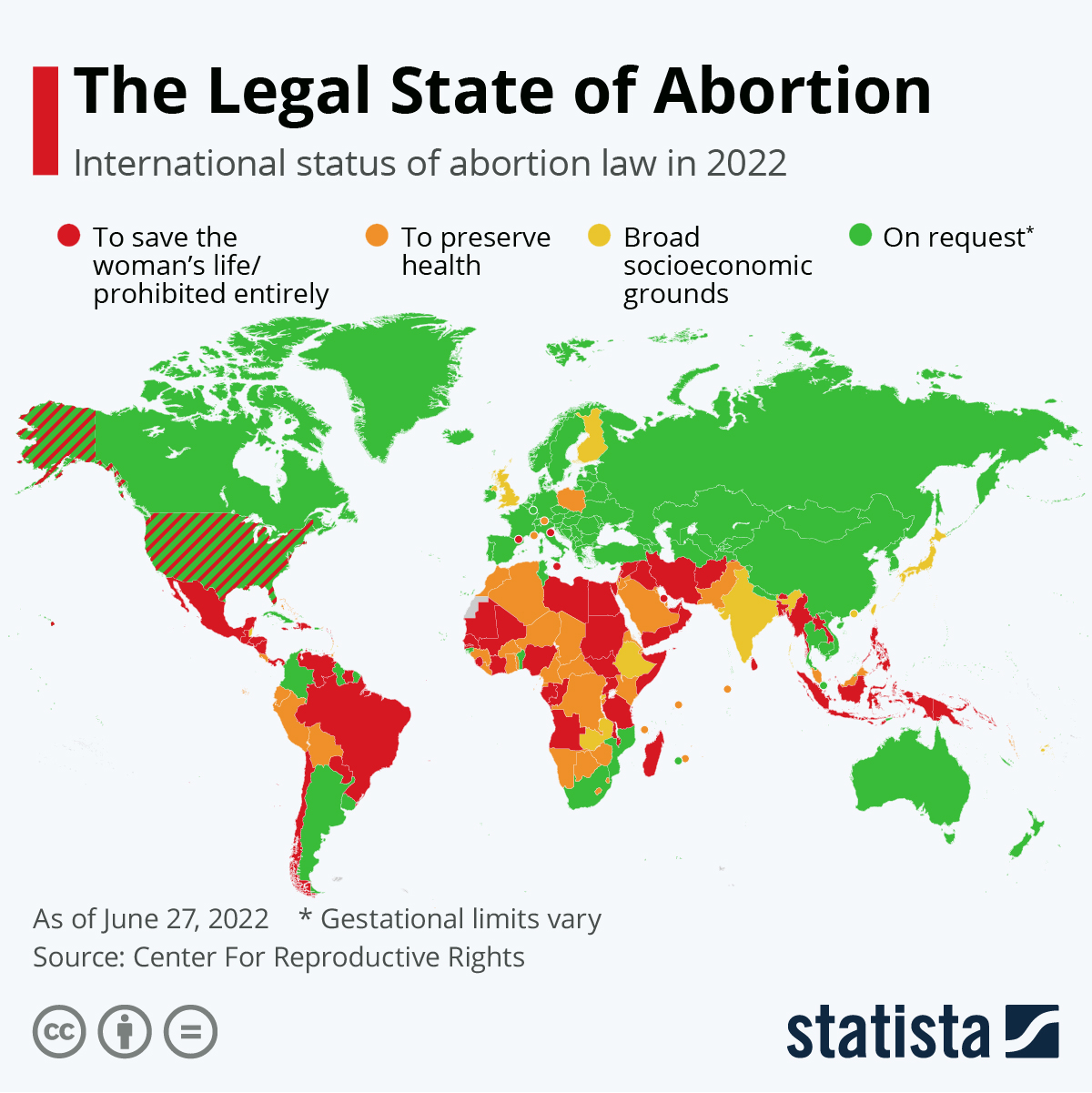It had been all but confirmed at the beginning of May, when a leaked draft opinion reported on by Politico revealed that the U.S. supreme court had provisionally voted to overturn Roe v Wade - the landmark 1973 ruling that legalized abortion nationwide in the United States. On June 24 though, the decision was officially confirmed, making the U.S. "one of only four countries to remove protections for legal abortion in over 25 years", according to The Center for Reproductive Rights. Reacting to the news, Nancy Northup, President and CEO of the legal advocacy organization, commented: "While public support for access to abortion is at an all-time high, the Court has hit a new low by taking away – for the first time ever – a constitutionally guaranteed personal liberty."
Progress is being made elsewhere in the world, however. In February this year, Colombia decriminalized abortion during the first 24 weeks of pregnancy. This was the latest step forward for reproductive rights in Latin America after a Supreme Court decision to decriminalize in Mexico in September 2021 - note that this has not yet gone into effect. In January 2021, Argentina had become the largest Latin American country to legalize abortion.
Asia has also seen moves in favor of reproductive rights. Effective from the start of 2021, South Korea decriminalized abortion until the 14th week of pregnancy. In Thailand, parliament voted in January 2021 to make abortion legal within the 12 weeks, although penalties are still in place for those who terminate later in their pregnancies. Africa, while the continent with the most progress still to be made, has also seen liberalization in recent years.





















